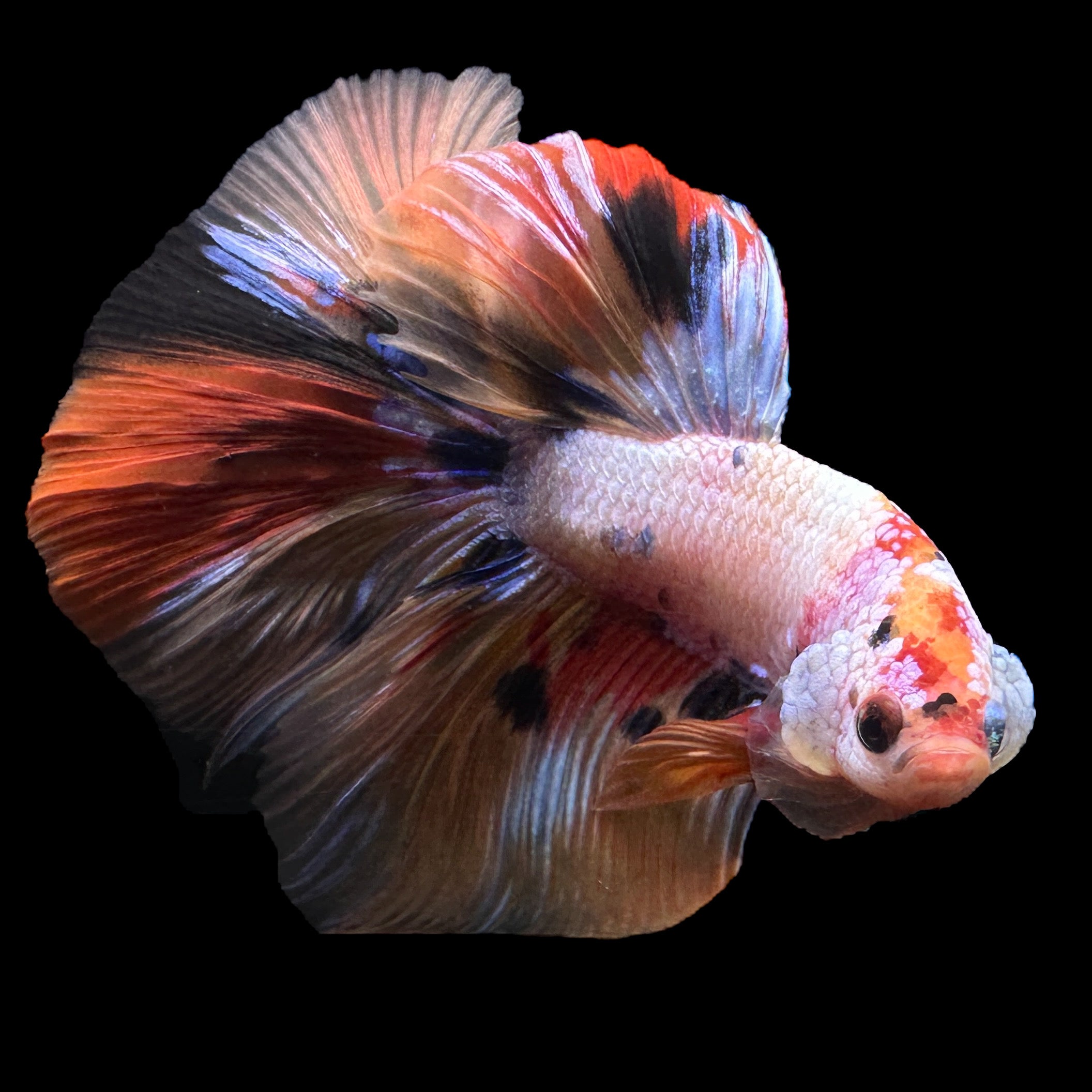Betta Fish Life Expectancy: Exactly How to Ensure Your Betta Lives Longer
All About Betta Fish: Understanding Their Unique Demands, Behavior, and the most effective Practices for Ideal Treatment
Comprehending the distinct needs and actions of Betta fish is important for any aquarist wanting to offer ideal care. These captivating animals, native to the warm waters of Southeast Asia, show unique territorial tendencies and require certain environmental conditions to prosper. From choosing the right storage tank dimension to acknowledging potential wellness issues, various factors considerably influence their wellness. As we discover these elements even more, the ramifications for both newbie and seasoned fish caretakers come to be increasingly apparent, raising questions regarding how best to suit these remarkable fish in our homes.
Betta Fish Introduction
Although often admired for their vibrant colors and flowing fins, Betta fish, medically recognized as Betta splendens, are intricate creatures that call for specific like grow. Stemming from Southeast Asia, these freshwater fish are recognized for their territorial nature and distinct actions. Betta fish show sex-related dimorphism, with males showing a lot more vibrant colors and longer fins than females.
Their hostile tendencies, specifically among men, require careful factor to consider when real estate them. Bettas are typically kept in single-specimen tanks to stop territorial conflicts. They can exist side-by-side in harmony with particular compatible species in bigger neighborhood containers, provided the environment satisfies their requirements.

To make certain ideal care, aquarists should comprehend their unique behavioral qualities, nutritional demands, and habitat needs. betta fish. With appropriate focus, Betta fish can show their lively individualities and grow in a well-maintained aquarium setting
Natural Environment and Environment
Betta fish flourish in a diverse series of all-natural environments, mainly found in the shallow waters of Southeast Asia, including rice paddies, swamps, and slow-moving streams. These settings are identified by warm temperature levels, usually between 75 ° F and 82 ° F(24 ° C and 28 ° C ), and a pH level varying from 6.5 to 7.5, which is suitable for their health and wellness and wellness.
In their natural environments, Betta fish are accustomed to dense vegetation, giving both shelter and breeding premises. The visibility of plants such as drifting water lilies and thick grasses not only provides security from predators yet additionally adds to the oxygenation of the water, which is important for their breathing needs. Additionally, these settings commonly have areas of still water, enabling Betta fish to exhibit their all-natural behaviors such as bubble nesting.
Recognizing the natural environment of Betta fish is important for aquarium lovers. Replicating these problems-- via water temperature, pH equilibrium, and the incorporation of live plants-- can significantly improve the overall wellness and longevity of these fascinating fish, ensuring they flourish in a home fish tank setting.
Social Habits and Communications
Comprehending the social actions and interactions of Betta fish is necessary for successful aquarium administration. Betta fish, or Siamese combating fish, are known for their special behavior qualities, characterized mainly by territoriality and aggressiveness. Males, specifically, show very aggressive behaviors towards one an additional, resulting in the well-known credibility of Betta fish as boxers. In a constrained space, two men can participate in view it terrible confrontations, typically causing injury or fatality.
Alternatively, women Bettas show much less hostile actions and can exist together in teams, recognized as sororities, if presented effectively. It is vital to check their interactions closely, Bonuses as hierarchy and dominance can lead to problems. Recognizing the characteristics within a Betta neighborhood is important; developing concealing areas and making sure adequate area can mitigate aggressiveness.
Additionally, Betta fish may likewise display interest and social habits towards various other types. While they can exist together with certain non-aggressive container companions, it is vital to choose suitable types to prevent tension and aggressiveness. Generally, acknowledging these social communications is crucial to fostering an unified aquarium environment for Betta fish.
Crucial Treatment Guidelines
Giving proper treatment for Betta fish is essential to their health and health. Normal water modifications-- around 25% weekly-- aid maintain water high quality.
Betta fish need an ideal tank size; a minimum of 5 gallons is advised to provide sufficient area for swimming and hiding. Consist of decors and plants to develop a revitalizing environment, however stay clear of sharp things that might damage their fragile fins.

Finally, make sure the storage tank is furnished with a filter to keep the water tidy, yet utilize a gentle filter to avoid solid currents that can worry the fish. By complying with these vital treatment standards, owners can promote a healthy and balanced and lively Betta fish.
Common Health And Wellness Issues and Solutions
In the care of Betta fish, recognition of typical wellness problems is vital for maintaining their health. To treat fin rot, boost water problems and consider making use of a broad-spectrum antibiotic.
Another common ailment is ich, a parasitic infection characterized by white areas on the fish's body (betta fish). Treatment includes increasing water temperature and including aquarium salt to the storage tank, as this can aid get rid of the parasite
Swim bladder condition is also frequently observed, causing buoyancy troubles. This condition might arise from overfeeding or bowel irregularity. A fasting period of 24-48 hours, complied with by a diet regimen of blanched peas, can offer alleviation.
Finally, bettas may experience velour disease, suggested by a gold dust-like look on their skin. Therapy usually calls for drug specifically developed for exterior parasites, alongside enhanced storage tank health.
Normal monitoring of water parameters, preserving a clean atmosphere, and supplying a well balanced diet regimen are crucial safety nets. By resolving these wellness issues promptly, Betta fish can lead healthier, much more lively lives.
Final Thought
In summary, successful betta fish treatment requires an understanding of their special demands and habits. Normal monitoring of wellness and water top quality, along with a balanced diet regimen, adds to the longevity and vibrancy of betta fish.